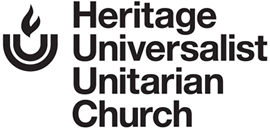by Rebecca Pace, HUUC Accounts Receivable Treasurer
Since the change in the tax law, increasing the standard deduction, Donor Advised Funds (DAF) have become more popular. Think of them as charitable savings accounts.
Tax-deductible contributions to a DAF allow a taxpayer to bunch their charitable contributions into one year, in order to itemize deductions, while taking the standard deduction in other years. You get the tax deduction when you make the contribution to the fund, but the actual grant to the church or other charity can be made later. This is particularly effective if you have unusually high income one year, with extra cash, but you want to be able to make contributions in later years when your cash flow is back to normal levels.
Donor Advised Funds have been around since 1931. The Greater Cincinnati Foundation sponsors DAFs as well as many brokerage houses. If you are considering this strategy, shop around to find one that fits your needs. Costs and support vary.
Your donation to the DAF is irrevocable. Technically, the donor advises the DAF custodian on when and what organizations should receive grants. There are a few restrictions on what type of organizations can receive grants from a DAF. You can make grants to the church or Heritage Acres or to the Endowment Fund.
Donor advised funds can accept cash, or stock or other property that can be sold. Most DAFs have a limited menu of investment choices you may use until you make the actual grant to the church or other charity.
October, 2019.

